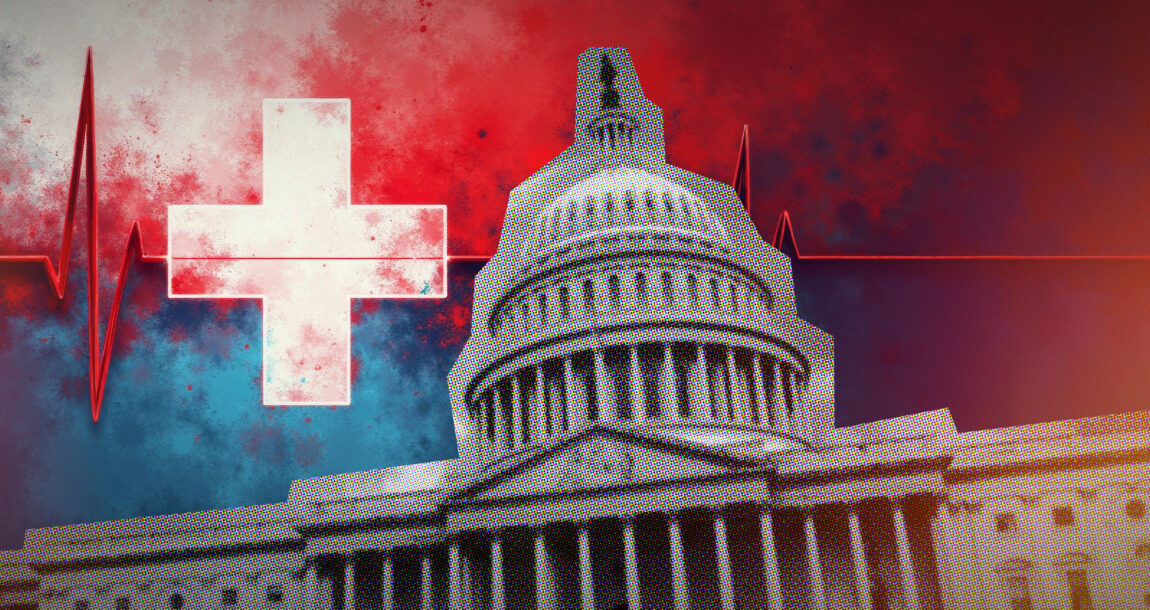Health care: How much of an issue in the election?

Health care has not been one of the central issues in the upcoming presidential and congressional elections. But Democratic presidential nominee Kamala Harris has campaigned on health-related issues more than her Republican opponent, Donald Trump, has.
Those were among the takeaways from a recent webinar by The Advisory Board, where two analysts from McDermott+Consulting gave their views on what the upcoming election could mean for health care.
During a campaign, “Democrats tend to lean into health care while Republicans tend to avoid it,” said Debbie Curtis, vice president at McDermott+Consulting.
She said Harris has focused on continuing and expanding Medicare prescription drug price negotiation, expanding Medicare’s $2,000 annual cap on out-of-pocket prescription drug costs to everyone, expanding $35 monthly insulin costs to everyone and ensuring that the enhanced tax credits that enable more Americans to purchase health insurance on the Affordable Care Act exchanges will continue after they are set to expire in 2025. More recently, Harris proposed expanding Medicare to cover home health care for older Americans.
Meanwhile, during Trump’s term as president, the COVID-19 pandemic and ACA repeal and replace were the two dominant health care issues, said Rodney Whitlock, vice president at McDermott+Consulting. Those two issues aren’t dominant this time around, but Whitlock said health care issues in a second Trump presidency would depend on who Trump would appoint to positions such as Secretary of Health and Human Services.
But much of what a president wants to accomplish depends on getting bills passed through Congress. So the makeup of the incoming Congress is crucial to the president’s health care agenda becoming law. With all 435 seats in the House of Representatives and one-third of the Senate seats up for election in November, the results of the congressional election will determine whether policy becomes reality.
Whitlock predicted the House would flip from Republican to Democratic control and the Senate would flip from Democratic to Republican control.
“Which would mean we would have divided government where no party is in control. If one party controls all three [White House, House and Senate], they get to be far more adventurous in their policy choices. They can do more of the things they want.”
However, the president still has some authority to influence health care policy through the regulatory arm of government, he said, regardless of which party controls Congress.
Congress returns for its lame duck session on Nov. 12, and health care legislation will be far down its list of priorities, Curtis said. Its top priority will be approving funding for disaster relief in the wake of two devastating hurricanes that hit the South this fall. Congress also is faced with approving a bill to continue funding the federal government beyond Dec. 20.
“Anybody in Congress who has a health care priority they want to get done this year wants to attach it to those bills in whatever way they pass at the end of the year,” she said. Extending Medicare’s telehealth flexibility and passing pharmacy benefit manager reform are two health care proposals that she believes will be discussed in Congress during the lame duck session.
Congress also must decide next year on whether to extend the enhanced ACA subsidies.
“There is a decision point for Congress next year, whether to extend those subsidies or not, and who is in the White House and who controls each body of Congress will have a big role to play in what happens there and when people become uninsured,” Curtis said. “There are state costs involved, provider costs, hospital costs. Those of us with private insurance pay more to cover those uncompensated care costs. It’s a big-ticket item - to extend the enhanced subsidies permanently would cost $335 billion over 10 years. That’s not chump change.”
© Entire contents copyright 2024 by InsuranceNewsNet.com Inc. All rights reserved. No part of this article may be reprinted without the expressed written consent from InsuranceNewsNet.com.





Advisor to SEC: show the court your guidance on commission payments
Cover Genius CEO: Partnerships, agility define the future of insurtech
Advisor News
- Economist: Tariffs could dampen GDP growth; raise unemployment, inflation
- Medium tenure for workers remains at about 5 years
- Making the most of Financial Literacy Month
- Tariffs alter Q2 economic outlook downward, Morningstar says
- Women need an advisor who’s also a coach
More Advisor NewsAnnuity News
- Emerging digital annuity sales process cutting cycle times by 94%, IRI says
- In times of market volatility, FIAs make the difference
- Charitable gift annuities gaining in popularity
- Nationwide and Annexus establish first actively managed mutual fund within a RILA
- AM Best Comments on the Credit Ratings of Talcott Financial Group Ltd.’s Subsidiaries Following Announced Reinsurance Transaction With Japan Post Insurance Co., Ltd.
More Annuity NewsHealth/Employee Benefits News
- Legislation for more cancer coverage for firefighters clears the Iowa Senate
- 5 trends shaping and challenging the insurance industry
- Health care costs bill signed by Lujan Grisham
- Friday roundtable in Rochester to focus on possible Medicaid cuts
- Studies from University of Southern California (USC) Yield New Information about Military Medicine (Health Insurance Coverage and Hearing Aid Utilization In Us Older Adults: National Health Interview Survey): Military Medicine
More Health/Employee Benefits NewsLife Insurance News
- 5 trends shaping and challenging the insurance industry
- Proxy Statement (Form DEF 14A)
- Symetra Partners with Nayya to Introduce Digital Leaving Planning Solution
- Krispy Kreme's owner is seeking approval to buy Shenandoah Life
- Krispy Kreme owner to acquire Roanoke-based Shenandoah Life
More Life Insurance News